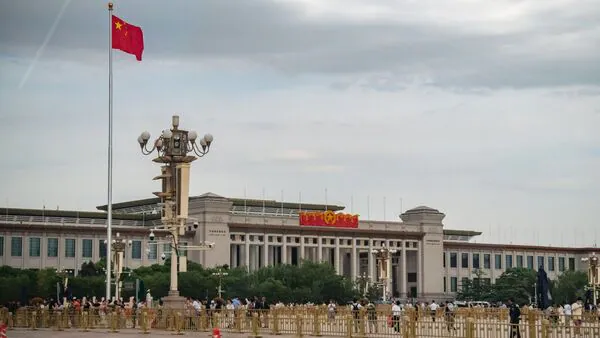
China Shifts Lending Focus To Wealthy Nations: US Is The Top Recipient - Study
European nations are similarly significant recipients of Beijing's lending:
EU (27 countries): $161 billion across nearly 1,800 projects
UK: $60 billion
Germany: $33.4 billion
France: $21.3 billion
Italy: $17.4 billion
Portugal: $11.7 billion
Netherlands: $11.6 billion
The report highlights that China's financial footprint is deeply embedded across Western economies.
China's lending much bigger than previously assumedWilliam & Mary's AidData research lab unveiled the findings on November 18, revealing that China has issued $2.2 trillion in aid and credit across 200 countries between 2000 and 2023. Compiled over 36 months using data collected by William & Mary students, the report-Chasing China: Learning to Play by Beijing's Global Lending Rules-spans more than 300 pages.
Brad Parks, AidData executive director and lead author, noted that China's total portfolio is“two-to-four times larger than previously published estimates suggest.” This marks the first AidData report to comprehensively map Beijing's lending in advanced economies, including the United States, the UK, Europe, Japan, and Australia.
From aid provider to geopolitical power playerThe report finds Beijing has moved away from philanthropic, development-focused lending, with cross-border finance increasingly reflecting party-state priorities such as:
-National security
-Economic statecraft
-Global supply chain leverage
-High-tech sector dominance
Much of the lending to wealthy countries is directed at critical infrastructure, critical minerals, and high-tech assets, including semiconductor companies.
Implications for global security and competitionAidData warns that China's operations are becoming more opaque, often routed through shell companies in jurisdictions with strict secrecy rules. The findings have broad geoeconomic and national security implications, including:
-Vulnerability of strategic reserves
-Reliability of power grids and energy networks
-Control of maritime choke points
-Resilience of global supply chains
-Competition in high-tech industries
The report highlights that great-power rivalry is spilling over into the development finance sector.
Western entities still doing business with ChinaDespite geopolitical tensions, many Western banks, corporations, and financial institutions continue to collaborate with Chinese state-owned lenders. Major Western companies have borrowed heavily from Beijing-backed financiers.
Also Read | China-Japan rift deepens as Chinese diplomat returns 'dissatisfied' Legal Disclaimer:
MENAFN provides the
information “as is” without warranty of any kind. We do not accept
any responsibility or liability for the accuracy, content, images,
videos, licenses, completeness, legality, or reliability of the information
contained in this article. If you have any complaints or copyright
issues related to this article, kindly contact the provider above.


















Comments
No comment